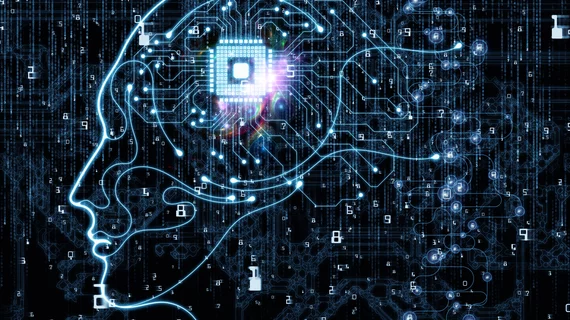AI diagnoses neurological diseases on CT in 1.2 seconds
An artificial intelligence (AI) platform created at Mount Sinai Health System in New York can accurately read a CT scan and diagnose a neurological illness, such as stroke in 1.2 seconds—outperforming its human counterpart.
“With a total processing and interpretation time of 1.2 seconds, such a triage system can alert physicians to a critical finding that may otherwise remain in a queue for minutes to hours,” said senior author Eric Oermann, MD, with the department of neurosurgery at the Icahn School of Medicine at Mount Sinai, in a release. “We’re executing on the vision to develop artificial intelligence in medicine that will solve clinical problems and improve patient care.”
According to authors, this is the first study to use AI for detecting a wide range of acute neurologic events that also contains direct clinical application. Their results were published August 13 in Nature Medicine.
Oermann and colleagues used 37,236 head CT scans to train a deep neural network to identify if an image contained critical findings.
The AI platform was then tested in a blinded, randomized controlled trial set it a simulated clinical environment. Triaging head CTs based on severity, the software was measured against a radiologist to determine which could notice the disease quickest.
The algorithm was able to pre-process and diagnose the image, and then send a notification an average of 150 times more quickly than it took a physician to complete the task.
Oermann said upcoming research will include enhanced CT scan labeling and a progression from “weakly supervised learning approaches” to “strongly supervised” techniques.
“The application of deep learning and computer vision techniques to radiological imaging is a clear imperative for 21st century medical care,” said author on the study, Burton Drayer, MD, with Mount Sinai, in the statement.

